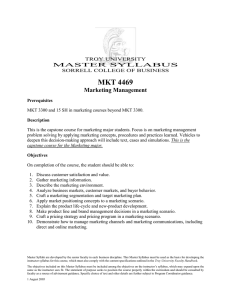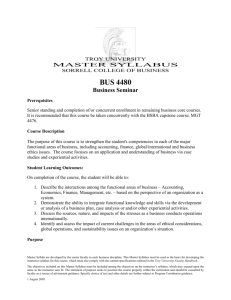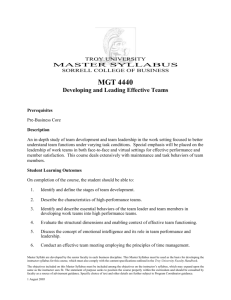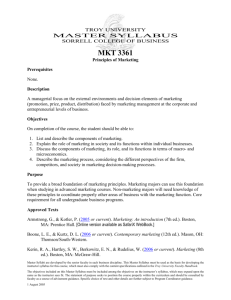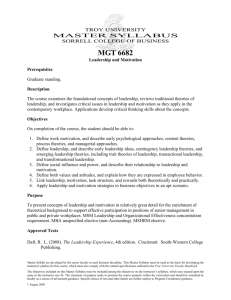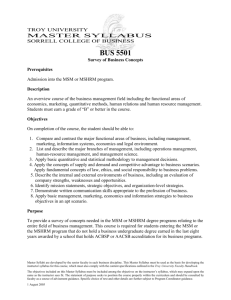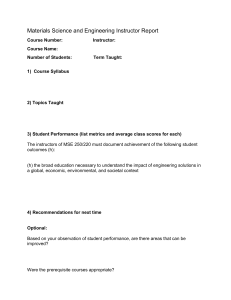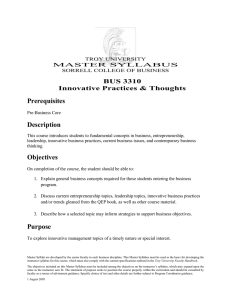MKT 4462 - the Sorrell College of Business at Troy University
advertisement
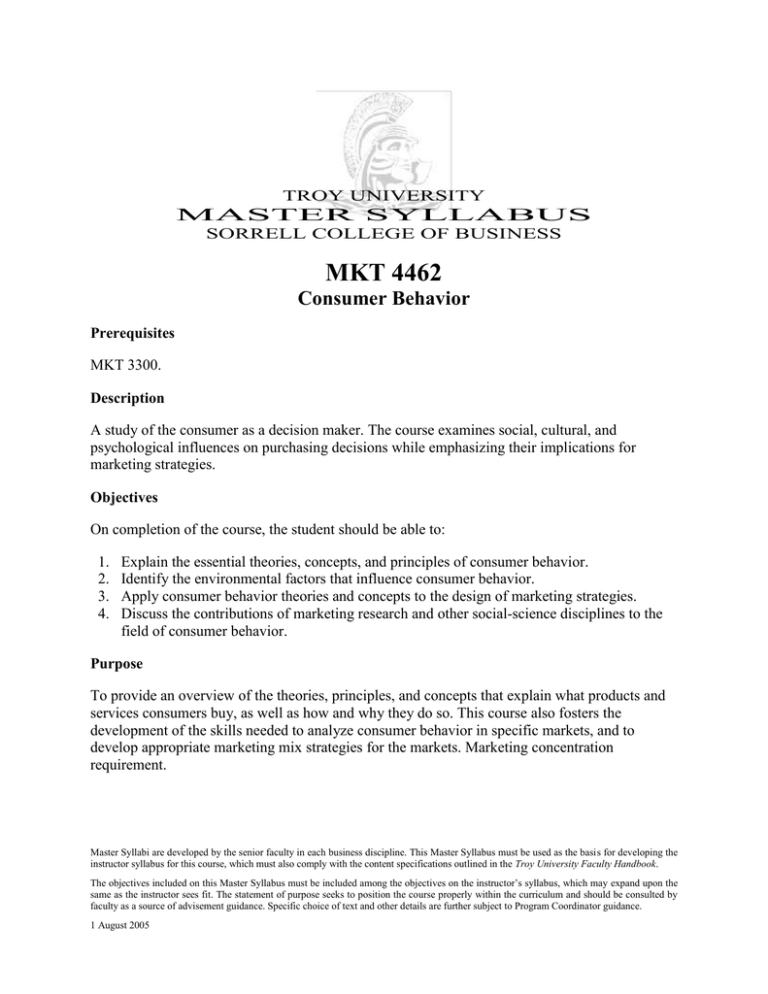
TROY UNIVERSITY MASTER SYLLABUS SORRELL COLLEGE OF BUSINESS MKT 4462 Consumer Behavior Prerequisites MKT 3300. Description A study of the consumer as a decision maker. The course examines social, cultural, and psychological influences on purchasing decisions while emphasizing their implications for marketing strategies. Objectives On completion of the course, the student should be able to: 1. 2. 3. 4. Explain the essential theories, concepts, and principles of consumer behavior. Identify the environmental factors that influence consumer behavior. Apply consumer behavior theories and concepts to the design of marketing strategies. Discuss the contributions of marketing research and other social-science disciplines to the field of consumer behavior. Purpose To provide an overview of the theories, principles, and concepts that explain what products and services consumers buy, as well as how and why they do so. This course also fosters the development of the skills needed to analyze consumer behavior in specific markets, and to develop appropriate marketing mix strategies for the markets. Marketing concentration requirement. Master Syllabi are developed by the senior faculty in each business discipline. This Master Syllabus must be used as the basis for developing the instructor syllabus for this course, which must also comply with the content specifications outlined in the Troy University Faculty Handbook. The objectives included on this Master Syllabus must be included among the objectives on the instructor’s syllabus, which may expand upon the same as the instructor sees fit. The statement of purpose seeks to position the course properly within the curriculum and should be consulted by faculty as a source of advisement guidance. Specific choice of text and other details are further subject to Program Coordinator guidance. 1 August 2005 Master Syllabus: MKT 4462 2 Approved Texts Schiffman, L., & Kanuk, L. L. (2004 or current). Consumer behavior (8th ed.). Upper Saddle River, NJ: Prentice Hall. Solomon, M. R. (2012 or current). Consumer behavior (10th ed.). Upper Saddle River, NJ: Prentice Hall. Troy University Faculty Handbook (2010): Section 3.9.2.8 [extract] — essential elements of the syllabus (somewhat modified for space): 1. Course title 2. Course number + section 3. Term 4. Instructor 5. Prerequisites 6. Office hours 7. Class days, times 8. Classroom location 9. Office location + e-mail address 10. Office telephone 11. Course description, objectives 12. Text(s) 13. Other materials 14. Grading methods, 16. General supports criterion weights, (computer works, make-up policy, writing center) mid-term grade 17. Daily assignments, reports holidays, add/drop 15. Procedure, course & open dates, dead requirements day, final exam 18. ADA statement 19. Electronic device statement 20. Additional services, statements 21. Absence policy 22. Incomplete-work policy 23. Cheating policy 24. Specialization requirements (certification, licensure, teacher competencies)

